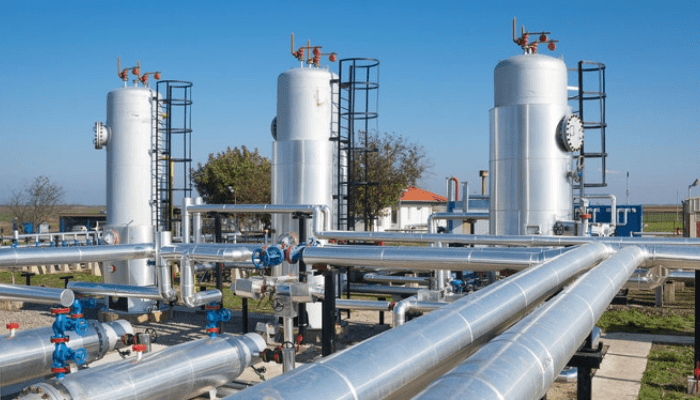Domestic gas consumption in Nigeria has surged to a 10-year high, largely driven by investments in Compressed Natural Gas (CNG) and a growing reliance on electricity.
Investment in power generation, compressed and liquefied natural gas adoption among other factors, have spurred Nigeria’s domestic gas consumption to a 10-year high, the latest report by the Gas Exporting Countries Forum (GECF) has revealed.
Data from the “Annual Statistical Bulletin 2024” report showed that domestic natural gas consumption rose to 518.42 billion cubic feet (bcf) in 2023, driven by increased industrial demand, power generation needs, and refineries among others.
Power generation topped with 246.14 bcf, industrial followed with 125.01 bcf, petrochemical accounted for 16.6 bcf, refineries 59.33 bcf and others took 71.34 bcf.
“Nigeria’s domestic consumption rose by a notable 13.2 per cent (+60.39 Bcf), reflecting its push toward greater utilisation of natural gas in transportation and economic development.
“This increase reflects enhanced access to energy and sustained economic growth where industrialisation and urbanisation have driven higher gas demand”, GECF said.
According to the Forum, the power generation sector remained the largest consumer of natural gas, accounting for 45 per cent of total domestic consumption, followed by residential demand at 30 per cent.
The rise in domestic gas consumption comes as Nigeria intensifies efforts to leverage its vast natural gas reserves, estimated at over 209 trillion cubic feet, to fuel economic growth and reduce reliance on imported energy.
Electricity in Nigeria is generated through thermal and hydropower sources. The primary source of electricity generation comes from fossil fuels, especially gas, which accounts for 86 per cent of the capacity in Nigeria, with the remainder generated from hydropower sources.
Experts attribute the spike to improved infrastructure, including new pipelines and processing facilities, as well as policies aimed at encouraging gas-based industries.
Country manager of TradeGrid, Jide Pratt, said, “This development means infrastructure like the elusive Ajaokuta-Kaduna-Kano (AKK) and Obiafu-Obrikom-Oben (OB3) Gas Pipelines and mother stations as well as virtual transport for CNG is on the up.
“We must find a way to direct gas on a massive scale with these projects being completed.”
The federal government has started pushing CNG as the silver bullet to end Nigeria’s perennial fuel shortages and a five-fold price hike since President Bola Tinubu abolished fuel subsidies in May 2023.
In September 2023, Tinubu established the Presidential Compressed Natural Gas Initiative (PCNGI) to drive CNG adoption and ease Nigeria into a cleaner energy era.
“About 100,000 cars have been converted so far, with more than $200 million already invested,” the CEO of the PCNGI, Michael Oluwagbemi, said.
With about 12 million vehicles on Nigerian roads, the Government is targeting the conversion of one million commercial vehicles by 2026.





